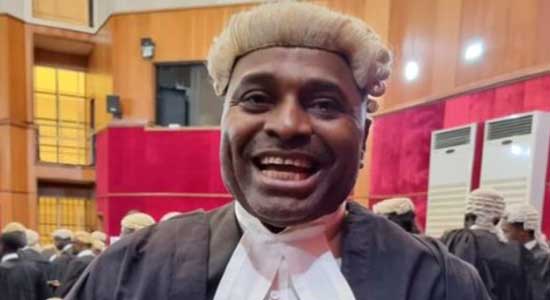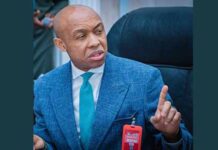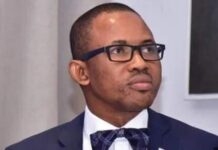Almost every nation on earth has been colonized, subdued, defeated, etc, at one time or the other in their history. The problem, therefore, with nations, is not that they were colonized at a certain period of their history, but that they remained mentally colonized many centuries after their physical colonization. United States of America (USA) was colonized by Great Britain for years. They fought for their liberation and emancipated themselves completely from mental slavery of the British. They rejected the British monarchical system of government and opted for the republican system where power belongs to the people, where the rule of law is preferable to the rule of an individual, and where everyone, no matter how powerful, even if the person is the President of USA, is equal before the law. The consistent practice of these philosophies enabled USA to emerge in 1990 as the most powerful nation on earth.
Nigeria, and indeed Africa, was colonized by European powers, the same way America was, from the late 19th to the 20th century. The Europeans have physically left Africa, but Africa, and indeed Nigeria, has not emancipated itself from the mental slavery of the Europeans. The most troubling aspect of this is the penchant of Nigeria to continue with the laws that were made by the Europeans to deny Nigerians of their fundamental human rights. A case in issue was the case of wandering, which was a criminal offence and which was made by the British to deny Nigerians of their right of movement into certain areas they didn’t want Nigerians to enter especially their own reserved quarters, until a lawyer fought against it and got it killed.
In judicial parlance, certain conventions were evolved by the Europeans to intimidate the citizenry and deny them of their freedom to hold opinions, and express their opinions and thoughts without undue interference, on how the Europeans were using the instrumentality of the judiciary to deny the citizens of their fundamental human rights. The main principle evolved by them was that citizens are not supposed to comment on any matter before the court as this will be subjudicial and prejudicial to the case before the court. Nigerians bought this assertion hook, line, and sinker, and has even enlarged it to mean a media trial whenever citizens or scholars comment on any issue that is before the court publicly. This is a slave mentality carried too far.
There’s no law anywhere in Nigeria that precludes Nigerian citizens from commenting on any matter in court. Every crime and its penalty must be in a written law. There’s no such offence anywhere in our books to my understanding. Even if there is, it’s unconstitutional because it will be an infringement on the fundamental human rights of Nigerians to hold opinions, and thoughts, and freely express them on any matter, and in anyway, without undue interference by anybody.
The only category of people that are restricted to comment on any matter before the court are the lawyers that represent parties in a matter before the court. It may interest Nigerians to know that even the lawyers that represent parties in a court are not totally banned from commenting on the matter. They are only restricted from making statements calculated to be prejudicial to the fair trial of the matter in court. Prejudicial means a preconceived opinion that is not based on reason or actual experience, which is harmful or detrimental to someone, or which influence people unfairly. What this means is that when a lawyer who is representing a client comes out of a court and makes a reasonable statement which is true, and which comes from his actual experience in court, and which is not prejudicial or intended to mislead or influence people unfairly, such Lawyer has not breached any rule of professional conduct. Also, there’s a difference between “don’t make a statement about a matter in court because that will be sub judice or prejudicial” and “don’t make any extra judicial, prejudicial statement about a matter in court that is intended to mislead and unfairly influence people”.
Whereas the former does not exist anywhere in our laws, the later exists in Rule 33 of the Rules of Professional Conduct for Legal Practitioners 2007. It categorically states that “A lawyer or law firm engaged in or associated with the prosecution or defence of a criminal matter, or associated with a civil action shall not, while litigation is anticipated or pending in the matter, make or participate in making any extra-judicial statement that is calculated to prejudice or interfere with, or is reasonably capable of prejudicing or interfering with, the fair trial of the matter or the judgment or sentence thereon”. Once a lawyer who is representing a client makes a statement that is true and emanated from his personal experience in the case in court, not calculated to prejudice or unfairly mislead the people, during the pendency of the matter in court, he has not run foul of the rule.
For the avoidance of doubt, this rule exempted other lawyers that are not part of the case. It must be stated that every citizen, including lawyers, has a duty not to intentionally mislead the public. Any person that does it will be criminally liable. Once it’s an issue of informing or educating the public on issues of law, lawyers have the right and even a duty to publicly inform or educate Nigerians on the applicable laws in a matter, even if the matter is pending before the court. Rule 46(1) is clear that “A lawyer may write articles for publications, or participate in radio and television programmes in which he gives information on the law”.
The most ridiculous aspect of this mantra of not commenting on any matter before the court, is the erroneous or even mischievous impression created in the minds of Nigerians by some corrupt politicians and their seemingly compromised lawyers that anti- corruption agencies like the Economic and Financial Crimes Commission (EFCC) has no right to publicly discuss the allegations and offences of citizens whom they have concluded arrangement to prosecute. The convention worldwide is that the Commission, not only have the right, but the duty to tell Nigerians of the alleged offences and proof of evidence, of any Nigerian, before prosecuting him to court. This is to ensure accountability, and transparency in the prosecution, to convince the whole world that the Commission is not embarking on a witch-hunt.
In the USA, whenever a person is indicted by a grand jury for allegations of crime and the person must face trial, the prosecutor usually goes before the public to tell the public the allegations against the individual, publish the proof of evidence for the perusal of the whole country. The lawyers and every citizen will take it up from there and start analysing the contents of the allegations and proof of evidence to educate and inform the public on whether there’s any merit in them or whether it is a mere witch-hunt by the state. This analysis continues throughout the trial, and even after judgement. There’s nothing like media trial there because the institutions owe the people an explanation that they are not unduly infringing on the fundamental freedoms of people or persecuting them by bringing frivolous charges but that they are working to ensure that justice is done. A case in hand is the indictment and trial of the former President of USA, Donald Trump, in which the Independent Counsel, Jack Smith, the Manhattan DA, Fulton County DA, publicly announced the allegations and offences and the proof of evidence with which Donald Trump was indicted for the whole world to see. Scholars, lawyers, journalists, and other professionals analyse and debate on the issues everyday while the case is pending in court. One simply needs to on the television and see the public display of the trial. When Donald Trump crossed the boundary by making prejudicial comments, the Judge, instantly found him liable and punished him accordingly. The Judge permitted him to say whatever he likes about the judge, and he has been saying very untrue statements about the judge, without the judge punishing him for that.
In Nigeria, it’s unfortunate that when the EFCC publicly announced the allegations against Yahaya Bello, the former Governor of Kogi State, some uninformed or mischievous citizens went to town shouting media trial. This is ridiculous. The people are supposed to demand from EFCC to be informed on the reason for the arrest of Yahaya, not to blame the Commission for revealing the reason. This is to ensure that Yahaya is not persecuted. It was the strategy of the colonial masters then to surreptitiously hound Nigerians to jail through spurious charges and when activists wanted to resist them or demand reasons for the persecution, they will beguile them that they should not comment on any matter before the court. In election cases, the courts and some lawyers will prefer to do illegal and unscrupulous things and beguile or intimidate Nigerians to keep quiet while the cases go on, only to find out that it’s late to do anything after the judgement.
Nigerians must learn that they have the right by law in Sections 38 and 39 of the 1999 Constitution to freely express themselves on any matter, including any matter before the court, provided that they are educating Nigerians on points of law, or saying the truth about the matter based on reason and their personal experience, without any intention to mislead or unfairly influence the people, or the fair trial of the case. The prosecuting agencies have a duty to transparently inform and disclose publicly every allegation and offence with which they intend to indict and prosecute any citizen of Nigeria. This will convince the people that they are not persecuting, but prosecuting the citizens to ensure justice for the offender, the victim, and the state.










